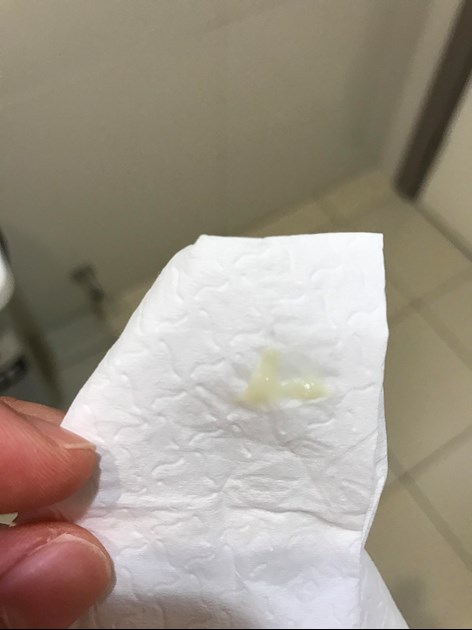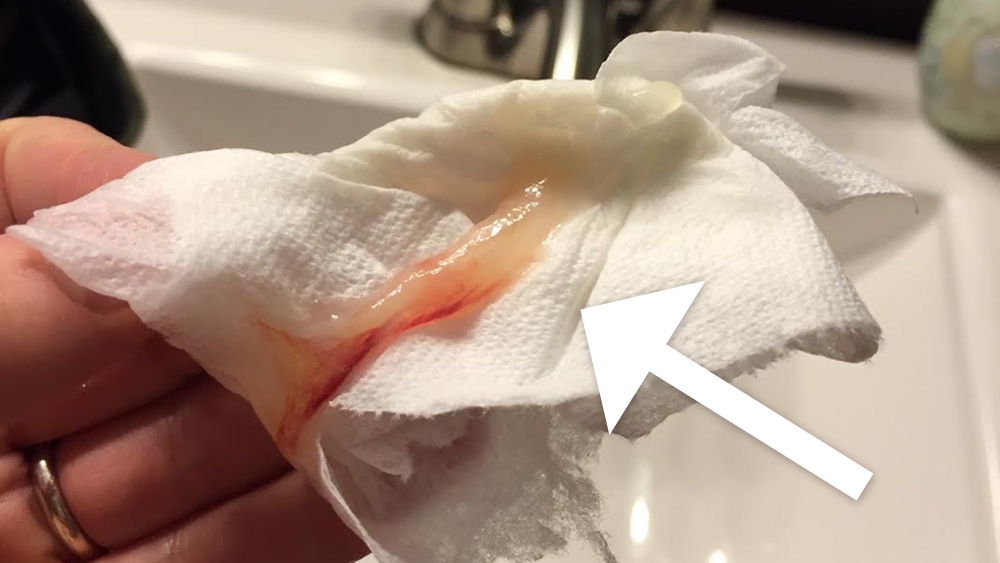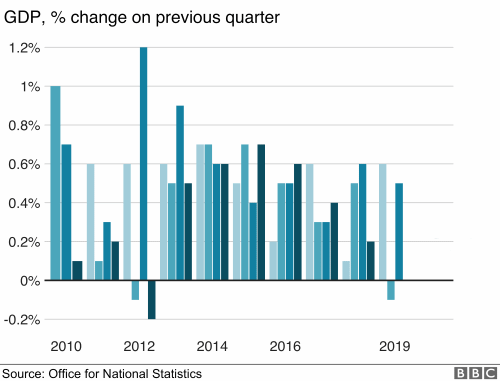Watery discharge while pregnant
Watery Discharge During Pregnancy- What To Expect
Women certainly go through a lot of changes during pregnancy. Right from morning sickness, fatigue, and achy feet to severe mood swings, pregnant women experience so many changes that can be both normal and unexpected. It’s natural for you to get worried about every little change that happens in your body. One such thing is the watery vaginal discharge during pregnancy that is faced by all women. This watery discharge is more during early pregnancy, and before labor, you might experience blood-tinged mucus discharge. Read on as we take you through watery discharge during pregnancy and what to expect.
The kind of watery discharge could differ depending on the stage of pregnancy you’re at.
What Is The Creamy White Discharge During Pregnancy?
The white creamy discharge during pregnancy is nothing but the fluid that comes out of your vagina. Your watery discharge differs depending on the different stages of pregnancy. This discharge can start 1-2 weeks after conception, sometimes even before you’ve missed your periods.
Additionally, you will experience a heavy discharge towards the end of your pregnancy. This happens because of the pregnancy hormone also known as estrogen. The blood flow in your pelvic area increases and spurs your mucus membranes.
Here are some of the characteristics of watery discharge during pregnancy, and what stage to expect it in:
First Trimester
- Has a pungent smell
- Similar to the blood released when on your menstrual cycle and can stain your undergarments
- Estrogen levels increase the blood flow in the vaginal area
Second Trimester
- Has a milky, egg white color
- More frequent compared to the first trimester
- Signs of foul-smelling or bloody discharge are indicators to consult a doctor
Third Trimester
- Blood flow to the cervical area increases
- Mucus discharge is milky-white, mucusy and may have a mild odor
- Discharge can differ depending on color, odor, frequency and the amount of blood
Normal Pregnancy Discharge
Experiencing a watery discharge during pregnancy is one of the many surprising things about it, yet can be completely normal. When you experience sticky, clean or white fluid discharge with a slight odor from your vagina, you can be at ease as that is considered normal discharge during pregnancy. Don’t worry if you ever notice a tint of yellow fluid on your underwear as it’s completely normal. Of course, you should turn to your doctor the moment something concerns you, but it’s better to be informed so you reduce your panic.
When you experience sticky, clean or white fluid discharge with a slight odor from your vagina, you can be at ease as that is considered normal discharge during pregnancy. Don’t worry if you ever notice a tint of yellow fluid on your underwear as it’s completely normal. Of course, you should turn to your doctor the moment something concerns you, but it’s better to be informed so you reduce your panic.
As you move into the second and third trimester of pregnancy, your estrogen and progesterone hormone levels will increase. They are responsible for increasing the blood flow to your vagina. This is a natural way for your body to keep your vagina clean and protect your baby from any kind of infection.
Leukorrhea
The common term for any fluid-like discharge from your vagina is called leukorrhea. Every woman experiences a white mucus-like discharge during puberty. Again, this leukorrhea differs for all women as it depends on your menstrual cycle. For most women, leukorrhea appears during the first few weeks after conception and then increases gradually.
For most women, leukorrhea appears during the first few weeks after conception and then increases gradually.
Amniotic Fluid
At the end of your pregnancy, you’ll notice that your watery discharge is similar to your urine and can have flakes in it. That is known as amniotic fluid and could be a cause of concern if you’re leaking amniotic fluid prematurely. Excessive amniotic fluid that feels like a gush can mean your water is breaking, and you’re not too far off from labor!
An additional problem arises when your fluid discharge is somewhat greenish in color in copious amounts. That can be an indicator that your baby has passed meconium, or early stool, in the womb. So, if you experience a greenish discharge, make sure you consult your doctor immediately.
Abnormal Pregnancy Discharge
It shouldn’t come to you as a surprise that the risk of vaginal infections is high during pregnancy. In case you notice that your discharge is green in color, has a bad odor, and causes you a lot of pain, itching or irritation, it can be an indicator of infection or any other problem.
In case you notice that your discharge is green in color, has a bad odor, and causes you a lot of pain, itching or irritation, it can be an indicator of infection or any other problem.
Here are some things you need to be mindful of with respect to abnormal pregnancy discharge:
Premature Labor
- Excessive blood flow in the last weeks of pregnancy
- Continuous watery, mucus-like or bloody vaginal discharge
Yeast Infection
- Thick, white, gray, yellowish or chunky looking discharge
- Irritation or pain while urinating
- Redness in your vaginal area
- Bacterial discharge has a strong fishy odor
STIs (Sexually Transmitted Diseases)
- Yellow or green color frothy discharge
- Odd or foul smell from your discharge
Vaginosis
- Itchiness or irritation while urinating
- Discharge has foul odor
- Can lead to premature labor or miscarriage
When To Call The Doctor?
It’s natural to experience vaginal discharge during pregnancy. Having said that, any signs of changes in your fluid’s consistency, smell or color need to be reported to your doctor. Also, if you experience any burning sensation, itchiness or redness in your vaginal area, you should immediately consult your doctor. You can’t stop your vaginal discharge, however, there are certain measures you can take to keep your vaginal area clean and healthy.
Having said that, any signs of changes in your fluid’s consistency, smell or color need to be reported to your doctor. Also, if you experience any burning sensation, itchiness or redness in your vaginal area, you should immediately consult your doctor. You can’t stop your vaginal discharge, however, there are certain measures you can take to keep your vaginal area clean and healthy.
Here are some things that you should take care of during pregnancy:
- Avoid using tampons
- Gently wash your vaginal area while bathing
- Change your undergarments frequently
- Refrain from wearing synthetic and tight clothes if you experience itching or redness on your skin
- Avoid douching in case you have a sensitive vulva
Watery discharge during pregnancy is natural. But do reach out to your doctor if you notice any drastic changes or experience any discomfort.
Conclusion
It’s okay if you find your vaginal discharge to be unpleasant, but remember that it is a natural process of your body. You just have to make sure that you keep a track of your discharge and its frequency. We’ve covered everything you need to know about your vaginal discharge during pregnancy and what to expect. After giving birth, you’ll have to take care of many other things like your child’s immunization and vaccination schedules. To help you with that, the ImmunifyMe app helps you keep a digitized record of your little one’s vaccination records.
FAQs On Watery Discharge During Pregnancy
What Does It Mean When Liquid Comes Out During Pregnancy?
The liquid that comes out during pregnancy can be milky vaginal discharge. It can happen in the first few weeks after conception and it gradually increases thereafter. The common medical term for this liquid discharge is leukorrhea.
Does Pregnancy Discharge Look Watery?
Pregnancy discharge or vaginal discharge can leave stains on your underwear. It is thin, watery and milky during the early stages of pregnancy and later on gets thick towards the end of your pregnancy.
Why Is My Discharge Watery?
You don’t have to worry if you have a watery discharge as it’s normal during pregnancy and assures you that there’s no sign of infection in your vaginal area. It happens because of changes in your hormones like your estrogen levels. They are responsible for increasing the blood flow towards your vagina during pregnancy.
How Can You Tell The Difference Between Discharge And Amniotic Fluid?
When your discharge is watery, milky and doesn’t have a foul odor, it can be considered as a normal vaginal discharge. As opposed to that, discharge of yellow or green color in copious amounts are signs of amniotic fluid; in this case, you need to consult your doctor immediately.
Vaginal discharge during pregnancy | Pregnancy Birth and Baby
beginning of content3-minute read
Listen
All women, whether they’re pregnant or not, have some vaginal discharge starting a year or 2 before puberty and ending after the menopause. How much discharge you have changes from time to time and it usually gets heavier just before your period.
How much discharge you have changes from time to time and it usually gets heavier just before your period.
Is it normal to have vaginal discharge in pregnancy?
Almost all women have more vaginal discharge in pregnancy. This is quite normal and happens for a few reasons. During pregnancy the cervix (neck of the womb) and vaginal walls get softer and discharge increases to help prevent any infections travelling up from the vagina to the womb. Increased levels of the hormones progesterone can also make you produce more fluid.
Increased discharge is a normal part of pregnancy, but it’s important to keep an eye on it and tell your doctor or midwife if it changes in any way.
How does vaginal discharge change during pregnancy?
Increased discharge can be a sign that you are pregnant — though many things can influence vaginal discharge so you can’t be sure this is the reason.
The amount of discharge may increase throughout the pregnancy. Towards the end, there may be so much you confuse it with urine.
Towards the end of pregnancy, the amount of discharge increases and can be confused with urine.
In the last week or so of pregnancy, your discharge may contain streaks of thick mucus and some blood. This is called a 'show' and happens when the mucus that has been present in your cervix during pregnancy comes away. It's a sign that the body is starting to prepare for birth, and you may have a few small 'shows' in the days before you go into labour.
When to see your midwife or doctor
You should tell your midwife or doctor if your vaginal discharge increases a lot in later pregnancy. If you have any vaginal bleeding in pregnancy, you should contact your midwife or doctor urgently, as it can sometimes be a sign of a more serious problem such as a miscarriage or a problem with the placenta.
Normal healthy discharge should:
- be clear and white
- not smell bad
Tell your midwife or doctor if:
- the discharge is coloured (greenish or brownish)
- there is blood in the discharge
- it smells strange
- you feel itchy or sore
If the discharge is coloured or smells strange, or if you feel itchy or sore, you may have a vaginal infection such as thrush, which your doctor can treat easily, or bacterial vaginosis. Do not try to treat it yourself — always talk to your doctor, pharmacist or midwife if you think you have an infection.
Do not try to treat it yourself — always talk to your doctor, pharmacist or midwife if you think you have an infection.
You can help prevent thrush by wearing loose cotton underwear, and some women find it helps to avoid perfumed soap or perfumed bath products.
Sources:
Mater Mother’s Hospital (Pregnancy - information for women and families), NSW Health (Having a baby), Jean Hailes for Women’s Health (Hormonal health – clues made clear)Learn more here about the development and quality assurance of healthdirect content.
Last reviewed: November 2020
Back To Top
Related pages
- Common discomforts during pregnancy
- Vaginal thrush during pregnancy
This information is for your general information and use only and is not intended to be used as medical advice and should not be used to diagnose, treat, cure or prevent any medical condition, nor should it be used for therapeutic purposes.
The information is not a substitute for independent professional advice and should not be used as an alternative to professional health care. If you have a particular medical problem, please consult a healthcare professional.
Except as permitted under the Copyright Act 1968, this publication or any part of it may not be reproduced, altered, adapted, stored and/or distributed in any form or by any means without the prior written permission of Healthdirect Australia.
Support this browser is being discontinued for Pregnancy, Birth and Baby
Support for this browser is being discontinued for this site
- Internet Explorer 11 and lower
We currently support Microsoft Edge, Chrome, Firefox and Safari. For more information, please visit the links below:
- Chrome by Google
- Firefox by Mozilla
- Microsoft Edge
- Safari by Apple
You are welcome to continue browsing this site with this browser. Some features, tools or interaction may not work correctly.
Some features, tools or interaction may not work correctly.
2nd trimester of pregnancy: what happens to the fetus
2nd trimester of pregnancy: what happens to the fetus - Private maternity hospital Ekaterininskaya ClinicsMost women enjoy the 2nd trimester of pregnancy more than the first, with the disappearance of morning sickness, breast tenderness and fatigue. But be prepared for some other symptoms to appear!
- Pain. As a result of stretching of the tissues of the body, you may experience pain in the sides and under the abdomen. Weight gain can cause back pain and leg cramps. The doctor will advise you on simple exercises for such cases.
- Stuffy nose. Increased hormone levels can lead to nasal congestion and nosebleeds.
- Soft gums. Your gums tend to bleed, so oral hygiene requires special attention and careful brushing.

- Skin itching. The skin of the abdomen may itch as a result of stretching associated with the growth of the child. Try to use a moisturizer daily to avoid stretch marks.
- Varicose veins and hemorrhoids. During pregnancy, you will be more susceptible to varicose veins and hemorrhoids. Try not to stand or sit for too long, and avoid crossing your legs while sitting. If discomfort or pain occurs in the anus, the doctor may prescribe a remedy for hemorrhoids.
- Vaginal discharge. A white, thin vaginal discharge called leucorrhea is normal during this period of pregnancy. These secretions help keep the vagina healthy. If you find discharge of a different type or color, contact your doctor for advice.
- Violation of skin pigmentation. Pregnancy hormones may contribute to the appearance of dark spots on the face and abdomen. The sun can exacerbate the appearance of spots, so use sunscreen when you go outside.
 Sun exposure without skin protection is contraindicated!
Sun exposure without skin protection is contraindicated! - Shortness of breath. As your lungs allow more oxygen to meet your baby's needs, you may experience shortness of breath or a faster rate of breathing.
- Increased appetite. As your child grows, you may feel hungry all the time, but there is no need to "eat for two". If you need to snack, choose healthy foods like fruit or yogurt.
The main stages of the 2nd trimester of pregnancy
- The first time you can feel the baby moving at 18-20 weeks of pregnancy. This phenomenon is called "revival" and is initially felt as a flutter in the abdomen.
- As your baby grows, your belly will grow.
2nd trimester baby development
End of 2nd trimester:
- Your baby moves and responds to touch and sound.
- Eyelids begin to open, eyebrows and eyelashes are visible.
- The skin is covered with fine, downy hairs and a creamy white substance called primordial lubrication.

- Swallowing and sucking reflexes develop.
- Hair began to grow on the head.
- Fingerprint lines have formed on the fingers.
- Baby's body length is about 23 cm from head to lower torso.
Mobile application of the clinic
You can make an appointment with a doctor, get tests
and much more...
Fill out the form to make an appointment or order a call back
I agree with personal data processing policy and user agreement I also give my consent to the processing of personal data.
Sign up for a consultation
I agree with personal data processing policy and user agreement I also give my consent to the processing of personal data.
By continuing to use rd.clinic23.ru, you agree to the use of cookies. How to ban the use of certain cookies can be found in Politics
why they appear in the early and late periods, in the 1st, 2nd and 3rd trimester, what to do at home
Pregnancy is an interesting and at the same time difficult period in a woman's life. It is necessary to pay attention to the slightest changes in the body, carefully monitor your health. When any deviations appear, a lot of questions are immediately born. This also applies to discharge: they are of different types, and there are many reasons. What do clear discharge during pregnancy mean and can they indicate the presence of any disease? We deal with the gynecologist.
It is necessary to pay attention to the slightest changes in the body, carefully monitor your health. When any deviations appear, a lot of questions are immediately born. This also applies to discharge: they are of different types, and there are many reasons. What do clear discharge during pregnancy mean and can they indicate the presence of any disease? We deal with the gynecologist.
Abundant discharge
Most often, profuse discharge appears in the second trimester of pregnancy, their color and consistency may change. All this is due to hormonal changes in the body of a woman. The amount of discharge increases due to the growth of the uterus and increased blood flow. If this does not cause discomfort, there is most likely no cause for alarm. But it will not be superfluous to ask the doctor about this at the next appointment.
Curdled discharge
This consistency may indicate fungal growth. In a pregnant woman with cheesy discharge, candidiasis is most often found (1). In addition to a change in consistency, unpleasant symptoms appear: burning, itching, less often redness.
In addition to a change in consistency, unpleasant symptoms appear: burning, itching, less often redness.
If you find curdled discharge, you should seek help from a specialist. Since there is a risk of infection of the child at the stage of fetal formation.
Mucous discharge
Such discharge is considered normal during pregnancy, if it is not too thick, not too much, does not cause burning and itching. Mucus appears due to an excess of the hormone estrogen. The discharge may be pale pink or milky in color. A pregnant woman develops a mucous plug that protects the uterus (respectively, the fetus) from infection. After 3 months of pregnancy, the discharge ceases to be mucous and does not contain clots.
Liquid discharge
Most often white in color, they are considered normal during pregnancy at any stage. But if such discharge is accompanied by a pungent odor, pain and itching, then this may indicate an infectious disease. The inflammatory process begins imperceptibly, while it can lead to serious consequences.
Heavy liquid discharge late in pregnancy may indicate amniotic fluid leakage. In this case, the immediate help of a specialist is required.
Photo: pixabay.comWhy there is a clear discharge during early pregnancy
The color of vaginal discharge in the first trimester can vary from clear to yellowish white. The consistency also changes: they are thick, more liquid or plentiful. Transparent discharge is not a deviation from the norm. But only if there are no other symptoms: changes in color, smell. Also, there should be no blood clots in the discharge.
— One must be prepared for the fact that during pregnancy the vaginal discharge will increase - this is the result of a change in the hormonal background. If the discharge is transparent, not abundant, does not cause discomfort, itching is the norm, - adds gynecologist, Candidate of Medical Sciences Yuliya Shishkina . - There is no need to contact an obstetrician-gynecologist. Just pay attention to intimate hygiene, use pharmacy products to wash, change your underwear more often. Give preference to good cotton linen of the correct form. But daily pads should not be used - they give a "greenhouse effect", which disrupts the oxygen exchange in the vagina and, conversely, can aggravate the discharge.
Give preference to good cotton linen of the correct form. But daily pads should not be used - they give a "greenhouse effect", which disrupts the oxygen exchange in the vagina and, conversely, can aggravate the discharge.
1 trimester
Clear discharge in the first trimester is more often accompanied by mucus. This is normal, because changes begin in a woman's body: in many respects they relate to the hormonal system. Mucous transparent discharge appears due to the formation of a cork that protects the embryo from infections.
It is important that there are not too many such discharges. If they are plentiful, you should consult a doctor.
Why do clear discharge appear during late pregnancy
In the second and third trimester, clear discharge is also a variant of the norm. However, in the later stages, abundant clear discharge can be easily confused with leakage of amniotic fluid.
2nd trimester
Clear, odorless, mucusless discharge is considered normal in the second trimester of pregnancy. It is necessary to ensure that there are no inclusions, blood clots and a sharp change in color.
It is necessary to ensure that there are no inclusions, blood clots and a sharp change in color.
3rd trimester
In the third trimester, clear discharge may indicate leakage of amniotic fluid and that the baby is pressed against the cervix (2). If they are accompanied by burning and itching, often redness, then a pregnant woman may have inflammation or infection. It is better to immediately seek help from a gynecologist.
From 22 weeks until the end of pregnancy, the frequency of Candida fungi also increases. This is due to changes in the hormonal background of a pregnant woman (3). It is especially important to pay attention when examining the presence of candidiasis: it can be treated even in the later stages.
How to deal with clear discharge during pregnancy at home
If there is heavy discharge, do not use panty liners, they can irritate the skin and create even more discomfort. At home, you only need to follow the basic rules of intimate hygiene.
If you experience discomfort, then you need to go to the doctor, who is likely to prescribe the necessary tests.
Popular questions and answers
Popular questions about transparent discharge at different stages of pregnancy are answered by a gynecologist, Candidate of Medical Sciences Yulia Shishkina.
What should you not do if you notice clear discharge during pregnancy?
Definitely don't panic. If you are in early pregnancy, then slight clear discharge is associated with hormonal changes that occur in your body. At a later date - the second, third trimester - according to the abundant incessant transparent discharge, leakage of amniotic fluid can be suspected. In this case, again, do not panic and immediately turn to an obstetrician-gynecologist. The doctor will use a special test to determine whether it is really amniotic fluid or not.
Should you see a doctor if you have clear discharge?
It is worth consulting a doctor if there is too much discharge, it causes itching, burning, there is an unpleasant smell, the color is rather yellow, green, white. This is a possible symptom of a vaginal infection, which can be dangerous for the unborn baby. Therefore, it is important to see a doctor. The obstetrician-gynecologist will treat this infection in accordance with the recommendations for the timing of pregnancy. And, as I said above, abundant discharge can be associated with leakage of amniotic fluid - also a reason for a mandatory trip to a specialist.
This is a possible symptom of a vaginal infection, which can be dangerous for the unborn baby. Therefore, it is important to see a doctor. The obstetrician-gynecologist will treat this infection in accordance with the recommendations for the timing of pregnancy. And, as I said above, abundant discharge can be associated with leakage of amniotic fluid - also a reason for a mandatory trip to a specialist.
Can clear discharge indicate the presence of any disease?
If the patient has been examined, we have ruled out the risk of infections or potential infection from a sexual partner, she has no complaints of discomfort due to discharge, they are not heavy - there is no need to worry about any disease.
If any of these points is in doubt, consult a doctor at least as a preventive measure.
Sources
- T.J. Aguin, J.D. Sobel, Vulvovaginal candidiasis in pregnancy, 2015 URL: https://pubmed.ncbi.nlm.













